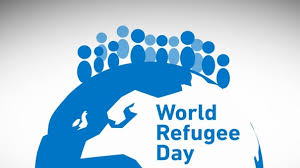Even without any ongoing war, the world remains unsafe for some people and continues to reel from the after-effects of great strife. Refugees from the wars in Libya, Syria, and Iraq; the unrest in Congo, Liberia, Sierra Leone, and Somalia; and the Boko Haram menace in Nigeria have fled their homes into other countries or to the relative safety of Internally Displaced Persons (IDP) camps. Owing to the determination of the human will to survive, war victims hardly aim to remain in a war zone until life is snuffed out of them. Even when their lives are not threatened, humans have a natural instinct to move from a place of suffering to greener pastures.
And so, because of the series of wars and unrest in their natural residencies, refugees are left with no other option than to run for dear life. Many have had to flee their home and country for survival, sometimes having to leave the bodies of wounded or deceased loved ones behind in flight. As the United Nations 1951 Refugee Convention defined it, these people had to flee owing to “well-founded fear of persecution because of his/her race, religion, nationality, membership in a particular social group, or political opinion.” Thus, many refugees are in exile to escape the effects of natural or man-made disasters of diverse natures and forms.
The World Refugee Day is, therefore, marked yearly in order to draw the public’s attention to the plight of millions of refugees and internally displaced persons worldwide, who have been forced to flee their homes due to war, conflict and persecution.
On 14th December 1950, the United Nations General Assembly established an agency, the Office of the United Nations High Commissioner for Refugees (UNHCR), mandated to safeguard the rights and well-being of refugees, lead and coordinate international action to protect refugees and resolve refugee problems worldwide. Fifty-one years after the establishment of the UNHCR, in the resolution which accompanied marking every June 20th as the World Refugee Day, the United Nations General Assembly also noted that 2001 marked the 50th anniversary of the 1951 Convention relating to the Status of Refugees.
Interestingly, prior to the year 2000 when the first World Refugee Day was first celebrated, the African Refugee Day had been formally celebrated in several African countries. The Organization of African Unity (OAU), which was the organization that morphed into the African Union (AU), had agreed for the United Nations to have the World Refugee Day coincide with Africa Refugee Day on June 20th, so as to have a synchronized commemoration date. Thus, all ground was set for proper awareness for the fate of refugees around the world.
Traditionally, a variety of events which involve government officials, celebrities, volunteers, humanitarian aid workers, civilians and refugees themselves, are marked up for the celebration of the World Refugee Day which takes place in more than 100 countries. Some of these activities may include, but are not limited to, individuals and community groups engaging in local events such as watching and sharing World Refugee Day videos, raising awareness for refugees on social media, encouraging individuals to provide refuge for displaced persons, as well as actively promoting peace-building culture among all men.
As the world, therefore, marks another World Refugee Day today, it is an opportunity to extend the golden hand of friendship and broadcast the message of peace to all of humankind, that we may all live together in unity, peace and progress.
References
UN
Wikipedia
Featured image source: Daily Asian Age

